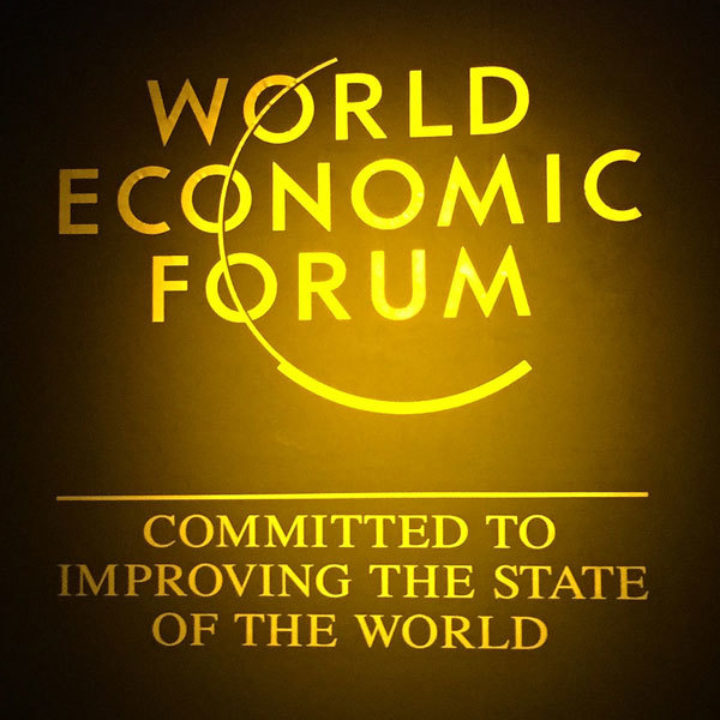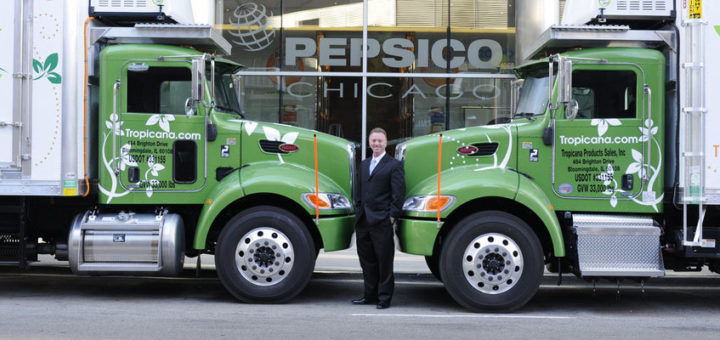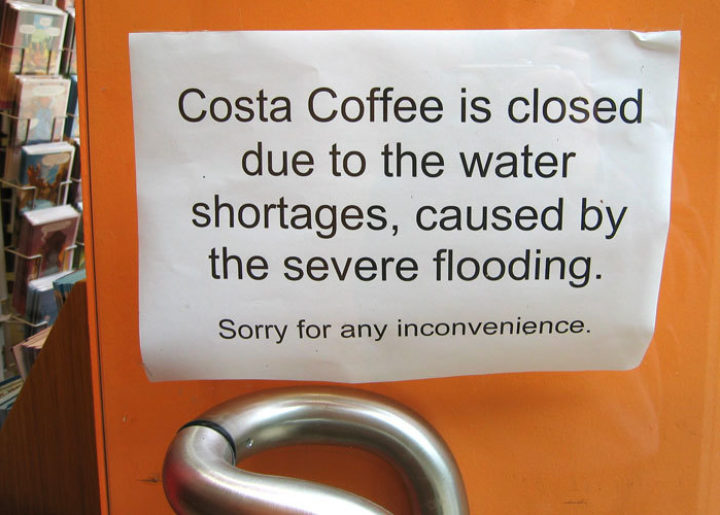Climate change sups at the Davos top table
Last month's Paris conference answered business calls for strong climate action - so what's next?
By Richard Black
Share
Last updated:
By Richard Black, ECIU Director
We’ve become used to seeing stories involving multiple billions and sometimes multiple trillions of dollars emerge from the snowy Alps of Switzerland at this time of year, as the amply-walleted of this world gather in Davos for the annual World Economic Forum meeting.

Discussions there have always contained a flavour of world-saving; but this year, we can expect climate change to dominate the discourse of billions and trillions to a much larger extent than hitherto.
The reason lies in a much larger settlement some 800km west-north-west of Davos: Paris.
If you thought green groups and priests were the only ones who pushed hard for a deal at last month’s UN climate summit, you’d be very wrong.
Businesses and their coalitions, including many of the world’s most profitable companies, also spent a lot of time cajoling ministers towards the door marked ‘ambition’ and showcasing their own carbon-cutting initiatives.
So, they got their deal; and Davos, as the first major gathering of the economic clans since the gavel fell just over a month ago, is the first chance bosses have to talk through what the deal means for them, and to celebrate the part they played in helping nervous policymakers over the finishing-line.
In good company
It’s worth recapping in this context some of the announcements made by businesses before and during the Paris summit.
- Fifty-three companies have committed to using 100% renewable energy in their own operations, with some on course to achieve the target before 2020. They include household names such as BMW, Ikea, Marks & Spencer, Mars and Microsoft. Ask why, and they’ll tell you there’s a mix of driving forces including energy security, predictable energy bills, cost savings in the mid- and long-term, and an enhanced reputation.
- Ten household names including Sony, Pfizer, Kellogg’s and Coca-Cola have set science-based targets for reducing carbon emissions. Coca-Cola’s is perhaps the sweetest in that it’s not only pledging to halve emissions from its operations by 2020, but also trim emissions from its drinks by a third. A swathe of other companies such as AstraZeneca, China Steel Corporation, Honda and Renault have pledged to develop such targets.
- More than 400 investors with $24 trillion in assets have pledged to measure risks and opportunities from climate change in their portfolios, work with companies in which they’re invested to lower emissions, and seek out low-carbon investment opportunities.
- About 450 businesses, including oil companies such as Exxon, Shell and BP, already use an internal carbon price because it saves money and hedges against stringent future climate policies.
And you can note that many of these corporates are being more ambitious than the big western governments. Few countries for example will be obtaining all their energy from renewable sources by 2020. European politicians have repeatedly torpedoed policies that could take the EU's carbon price anywhere near $40 (€36) per tonne.

You’d have to be the most one-eyed of commentators, then, to contend that ‘business’ as a single sector is either fighting against action on climate change, or just not interested in it.
Of course ‘business’ isn’t a single sector. Some companies and some sectors will be severely compromised by the Paris Agreement, with coal in the vanguard, and are fighting tooth and nail either in public or in private to undermine it.
But it’s interesting in that context to consider and decode the declaration issued by a group of 10 oil and gas majors just before Paris. They support:
moves to reduce the carbon intensity of the global energy system (subtext: throw coal under the bus and burn more gas)
policy frameworks consistent with a 2 Celsius global warming target (subtext: tell us clearly what you’re going to make us do and when, and we’ll adjust our business models)
collaboration on issues such as carbon capture and storage (subtext: if we need this for our survival, we’ll invest).
It doesn’t mean that all fossil fuel companies are turning into climate angels, but it does mean they’re reading the runes.
Risks and benefits
Like governments and individuals, businesses are doing what they’re doing because they’re surveying the landscape of risks and opportunities and making decisions about their optimal strategy.
WEF’s own annual survey of experts, reported last week, put climate change at the top of a list of business risks that for comparison included weapons of mass destruction and energy price shocks.
Meanwhile, companies taking the strongest climate action outperformed the Bloomberg world index of top companies [pdf link] by almost 10% from 2010-2014
That’s not to say that every company in every sector would benefit from adopting strong climate policies, but it does suggest that on average, it’s a smart strategy.

WEF has been debating climate change and other sustainability issues such as fresh water and seafood for years, partly because they’re a threat to supply chains. Its first CEOs’ statement backing climate action came out 11 years ago.
And it’s easy to argue that the annual Davos shindigs, for all the glitz and glamour and mega-dollars on display, have directly encouraged company bosses to move forwards on these issues because it’s one of the few places where CEOs get to rub shoulders with experts in a setting that is both business-focussed and panoramic.
This year's meeting promises to take discussions to a new level, because of the view that the Paris outcome has re-shaped the business world. Scheduled sessions on issues such as the future of energy systems, financial risks for extractive industries and delivering clean reliable energy to the poorest parts of the world will come with a flavour now that’s more implementation than imagination.
One senses that many of the champagne glasses being gripped during the Davos receptions will be raised in toast to what businesses helped achieve in Paris, and to taking the brakes off low-carbon progress in the years ahead. If tackling climate change is a smart business choice, then Paris just offered businesses the opportunity to become even smarter.
Share